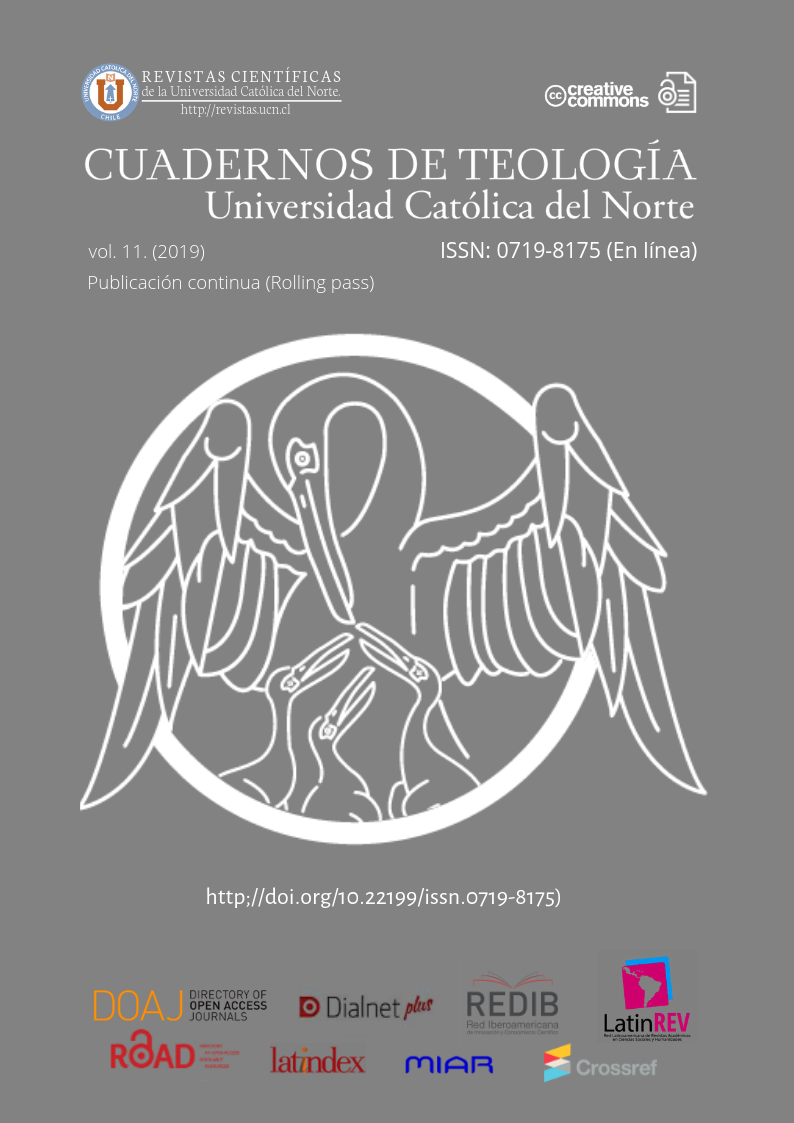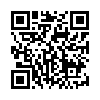¿Están la ciencia y la fe en conflicto?. Depende de lo que se entienda por ‘conflicto’
DOI:
https://doi.org/10.22199/issn.0719-8175-2019-0007Palabras clave:
Religión y ciencia, Propósito humano, Moralidad, MaterialismoResumen
La historia de la ciencia muestra que la religión cristiana no ha estado en oposición o conflicto con la ciencia, sino más bien en estrecha colaboración y entendimiento. Los principios en los que se basa el cristianismo y los atributos divinos favorecen el conocimiento humano y la investigación de la naturaleza. En el siglo XIX y en especial con el surgimiento de la teoría darwinista de la evolución, la idea se conflicto se afianzó en numerosos ambientes académicos. Sin embargo, un análisis en epistemológico indica que el conflicto no es acerca de la evidencia que la ciencia y la religión puedan presentar, o acerca de los objetos de estudio mismo. No existe tal conflicto cuando se entienden bien la fe y la ciencia, y para ello hay que ser humildes en ambos y reconocer que no tenemos todo el conocimiento necesario para la verdad. Pero sí existe un conflicto en cuanto a quién tiene la autoridad acerca de la verdad, especialmente la verdad final, aquella que va más allá de lo material, y un conflicto en cuanto a la existencia o no de un propósito para la naturaleza y, en particular, del ser humano.
Citas
Alexander, D. (2007). Models for relating science and religion. The Faraday papers, (3), 4. Recuperado de https://bit.ly/2QHeEMR
Alexander, R. (1987). The biology of moral systems. Nueva York, NY: Aldine De Gruyter.
Allen, C. y Neal, J. (2019). Teleological notions in biology. En E. Zalta (Ed.), The Stanford encyclopedia of philosophy. Recuperado de https://stanford.io/36s36Uk
Alvira Domínguez, R. (2002). Fe en la razón y razón en la fe. Humanidades, 2(1), 15-21. Recuperado de https://bit.ly/2Fe2R3i
Ayala, F. (1987). The biological roots of morality. Biology and philosophy, 2(3), 235-252, https://doi.org/10.1007/bf00128831.
Barash, D. (27 de Octubre de 2014). God, Darwin and my college biology class. The New York Times. Recuperado de https://nyti.ms/2FafSel
Barbour, I. (2004). El encuentro entre ciencia y religión. ¿Rivales desconocidas o compañeras de viaje? Santander: Sal Terrae.
Begley, S. y Westley, M. (20 de Julio de1998). Science finds God. Newsweek, 132(3), 46–51. Recuperado de https://wapo.st/2MOQ8Zn
Bowler, P. (2009). Evolution: the history of an idea. Berkeley, CA: University of California Press.
Bowler, P. (2012). Christian responses to darwinism in the later nineteenth century. En J. Stump y A. Padgett (Eds.), The blackwell companion to science and christianity (pp. 37-47). Cambridge: Blackwell.
Brand, L. (2003). The integration of faith and science. Journal of the adventist theological society, 14(1), 121-137. Recuperado de https://bit.ly/37qFMGQ
Brooke, J. (1991). Science and religion: some historical perspectives. Cambridge: Cambridge University Press.
Brooke, J. (2001). The Wilberforce-Huxley debate: why did It happen? Science & christian belief, 13(2), 127–141. Recuperado de https://bit.ly/2uapmEd
Buckley, M. (1987). At the origins of modern atheism. New Haven, CT: Yale University Press.
Carroll, S. (23 de Junio de 2009). Science and religion are not compatible. Recuperado de https://bit.ly/36hd62W
Comité ad hoc para la supervisión del uso del catecismo de la Iglesia Católica de la conferencia de obispos católicos de los Estados Unidos (2007). Catecismo católico de los Estados Unidos para los adultos. (2007). Washington, DC: Conferencia de obispos católicos de los Estados Unidos. Recuerado de https://bit.ly/2ZNx8j1
“Standing up in the milky way”. Cosmos: a spacetime odyssey, season 01, episode 01, National Geographic Channel, 9 Mar. 2014.
Chambers, R. (1844). Vestiges of the natural history of creation. Londres: John Churchill.
Collins, F. (2016). ¿Cómo habla Dios? La evidencia científica de la fe. Madrid: Ariel.
Darwin, C. (1971). El origen del hombre. Valencia: F. Sempere y Co.
Davis, P. (2006). The Goldilocks enigma: why is the universe just right for life?. London: Allen Lane.
Dawkins, R. (1982). Replicators and vehicles. En King's College Sociobiology Group (Eds.), Current problems in sociobiology (pp. 161-180). Cambridge: Cambridge University Press.
Dawkins, R. (1995). River out of Eden: a Darwinian view of life. New York, NY: Basic Books.
de Waal, F. , Smith Churchland, P. , Pievani, T. y Parmigiani, S. (Eds.). (2014). Evolved morality: the biology and philosophy of human conscience. Boston, MA: Brill. https://doi.org/10.1163/9789004263888.
Depew, D. y Weber, B. (2011). The fate of darwinism: evolution after the modern synthesis. Biological theory, 6(1), 89-102. https://doi.org/10.1007/s13752-011-0007-1.
Desmond, A. y Moore, J. (1991). Darwin. London: Michael Joseph.
Easterbrook, G. (1997). Science and God: a warming trend?. Science, 277(5328), 890-893. https://doi:10.1126/science.277.5328.890.
Ecklund, E. y Scheitle, C. (2007). Religion among academic scientists: distinctions, disciplines, and demographics. Social problems, 54(2), 289-307. https://doi.org/10.1525/sp.2007.54.2.289.
Evans, C. (2015). Why Christian faith still makes sense. A responde to contemporary challenges. Grand Rapids, MI: Baker Academic.
Farber, P. (1994). The temptations of evolutionary ethics. Berkeley, CA: University of California Press.
Gillespie, N. (1979). Charles Darwin and the problem of creation. Chicago, IL: University of Chicago Press.
Goodenough, U. y Deacon, T. (2003). From biology to consciousness to morality. Zygon, 38(4), 801-819. https://doi.org/10.1111/j.1467-9744.2003.00540.x.
Gould, S. (1977). Ever since Darwin. London: Penguin.
Gould, S. (1983). Extemporaneous comments on evolutionary hope and realities. En C. Hamrum (Ed.), Darwin’s legacy: Nobel conference XVIII (pp. 95-103). San Francisco, CA: Harper and Row.
Hannam, J. (2011). The genesis of science. How the christian middle ages launched the scientific revolution. Washington, DC: Regnery Publishing.
Hannam, J. (05 de Mayo de 2011). Science owes much to both christianity and the middle ages. Recuperado de https://go.nature.com/2sC6Hk4
Harrison, P. y Lindberg, D. (2011). Early christianity. En J. Brooke y R. Numbers (Eds.), Science and religion around the world (pp. 67-91). Oxford: Oxford University Press.
Haught, J. (2008). God and the new atheism: a critical response to Dawkins, Harris, and Hitchens. Louisville, KY: Westminster John Knox Press.
Hawking, S. (1988). Breve historia del tiempo: del big bang a los agujeros negros. (M. Ordoño, Trad.). México, DF: Grijalbo.
Hawking, S. y Mlodinow, L. (2010). El gran diseño. (D. Jou i Mirabent, Trad.). Barcelona: Crítica.
Hutchinson, I. (2007). Warfare and wedlock: redeeming the faith-science relationship. Perspectives on science and christian faith, 59(2), 91-101. Recuperado de https://bit.ly/2Fe2Igi
Huxley, J. (1942). The modern synthesis. London: Allen and Unwin.
James, F. (2005). An ‘Open clash between science and the church’?: Wilberforce, Huxley and Hooker on Darwin at the british association, Oxford, 1860. En D. Knight y M. Eddy (Eds.), Science and beliefs: from natural philosophy to natural science 1700-1900 (pp. 171-193). Aldershot: Ashgate. https://doi.org/10.4324/9781315243733-15.
Joyce, R. (2006). The evolution of morality. Cambridge, MA: The MIT Press.
Katz, B. (2004). The fifth narrative: the wiser ascend of Icarus. Bloomington, IN: Authorhouse.
Katz, L. (Ed.) (2000). Evolutionary origins of morality: cross-disciplinary studies. Exeter: Imprint Academic.
Koonin, E. (2009). The Origin at 150: is a new evolutionary synthesis in sight?. Trends in genetics, 25(11), 473–475. https://doi.org/10.1016/j.tig.2009.09.007.
Krebs, D. (2011). The origins of morality: an evolutionary account. Oxford: Oxford University Press.
Larsen, T. (2008). “War is over, if you want it”: beyond the conflict between faith and science. Perspectives on science and christian faith, 60(3), 147-155. Recuperado de https://bit.ly/2ucYfbL
Leuba, J. (1934). Religious beliefs of American scientists. Harper's magazine, 169(8), 291-300. Recuperado de https://bit.ly/36hOUxp
Lewontin, R. (1997). Billions and billions of demons [Reseña del libro The demon-haunted world: science as a candle in the dark de Carl Sagan]. The New York review of books, 44 (1). Recuperado de https://bit.ly/2QIx5AQ
Lindberg, D. y Numbers, R. (1987). Beyond war and peace: a reappraisal of the encounter between christianity and science. Perspectives on science and christian faith, 39(3), 140-149. Recuperado de https://bit.ly/2SJF6Z2
Mayr, E. (1972). The nature of the darwinian revolution. Science, 176(4038), 981-989. https://doi.org/10.1126/science.176.4038.981.
McGrath, A. (2015). The big question. Why we can’t stop talking about science, faith and God. Nueva York, NY: St. Martin’s Press.
McGrath, A. (2017). The great mystery. Science, God and the human quest for meaning. London: Hodder & Stoughton.
Monod, J. (1971). Chance and necessity. Glasgow: William Collins and Sons.
Monterosso, J., Royzman, E. y Schwartz, B. (2005). Explaining away responsibility: effects of scientific explanation on perceived culpability. Ethics and behavior, 15(2), 139-158. https://doi.org/10.1207/s15327019eb1502_4
Moore, J. (1981). The post-darwinian controversies: a study of the protestant struggle to come to terms with Darwin in Great Britain and America, 1870-1900. Cambridge: Cambridge University Press.
Moss, L. (1992). A Kernel of truth? On the reality of the genetic program. PSA: Proceedings of the biennial meeting of the Philosophy of Science Association 1992, (1), 335-348. https://doi.org/10.1086/psaprocbienmeetp.1992.1.192766.
Nagel, T. (1997). The last word. Oxford: Oxford University Press.
Nagel, T. (2012). Mind and cosmos: why the materialist neo-darwinian conception of nature is almost certainly false. Oxford: Oxford University Press.
Nash, R. (1992). Worldviews in conflict. Choosing christianity in the world of ideas. Grand Rapids, MI: Zondervan.
Ortega y Gasset, J. (1967). El origen deportivo del estado. Citius, altius, fortis, 9(1), 259-276. Recuperado de https://bit.ly/2Qg2wDK
Papp, D. (1993). Darwin. La aventura de un espíritu. Madrid: Espasa-Calpe.
Provine, W. (1988a). Evolution and the foundation of ethics. MBL Science, 3(1), 25-29.
Provine, W. (1988b). Scientists face it! Science and religion are incompatible. The Scientist, (16). Recuperado de https://bit.ly/2QzHGhy
Rasi, H. (2003). El cristiano ante la fe y la razón. Diálogo, 15(3), 5-9. Recuperado de https://bit.ly/2STNl4C
Rees, M. (2000). Just six numbers: The deep forces that shape our universe. London: Phoenix.
Rushdie, S. (1990). Is nothing sacred? The Herbert Read memorial lecture. Cambridge: Granta.
Schmidt, A. (2004). How Christianity changed the world. Grand Rapids, MI: Zondervan.
Sequeiros, L., Martínez de la Fe, J. y Prieto Santana, M. (2010). Stephen Hawking, The grand design y los medios de comunicación: filosofía, ciencia y religión. Pensamiento, 66(249), 809-832. Recuperado de https://bit.ly/2QfPvKq
Simpson, G. (1967). The meaning of evolution. New Haven, CT: Yale University Press.
Spradley, J. (2005). How have Christian faith and natural science interacted in history? En D. Chappell y E. Cook (Eds.), Not just science. Questions where Christian faith and natural science intersect (pp. 27-57). Grand Rapids, Michigan: Zondervan.
Stark, R. (2004). For the glory of God. How monotheism led to reformations, science, witch-hunts, and the end of slavery. Princeton: Princeton University Press.
Stenmark, M. (2004). How to relate science and religion. Grand Rapids, MI: Eerdmans.
Talbott, S. (2017). Evolution and the purposes of life. The New Atlantis, (51), 63-91. Recuperado de https://bit.ly/2u7bQkA
Theißen, G. (2009). Saltational evolution: hopeful monsters are here to stay. Theory in biosciences, 128(1), 43-51. https://doi.org/10.1007/s12064-009-0058-z.
Turner, F. (1978). The victorian conflict between science and religion: a professional dimension. Isis, 69(248), 356-376. https://doi.org/10.1086/352065.
Whitfield, J. (2008). Biological theory: postmodern evolution?. Nature, 455(7211), 281-284. https://doi.org/10.1038/455281a.
Wilson, C. (2010). Darwinian morality. Evolution: education and outreach, 3(2), 275-287. https://doi.org/10.1007/s12052-009-0162-z.
Wolf, S. (2010). Meaning in life. Princeton, NJ: Princeton University Press.
Wong, P. (Ed.) (2013). The human quest for meaning: theories, research, and applications. New York, NY: Routledge.
Zinke, E. (2004). Faith-Science issues: an epistemological perspective. Journal of the adventist theological society, 15(1), 63-90. Recuperado de https://bit.ly/2MNZLHw
Publicado
Cómo citar
Número
Sección
Los autores continúan como propietarios de sus trabajos, y pueden volver a publicar sus artículos en otro medio sin tener que solicitar autorización, siempre y cuando indiquen que el trabajo fue publicado originariamente en Revista Cuadernos de Teología (eISSN:0719-8175).











_(1).png)







